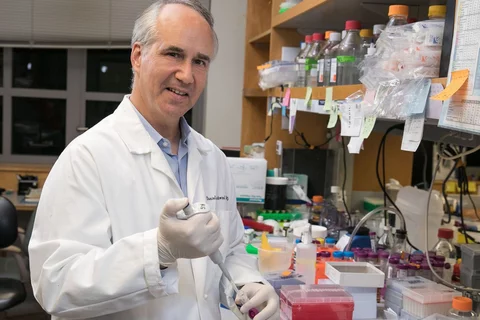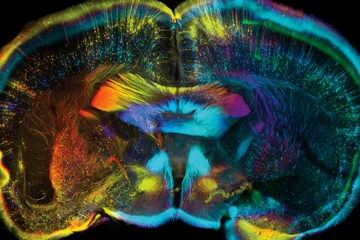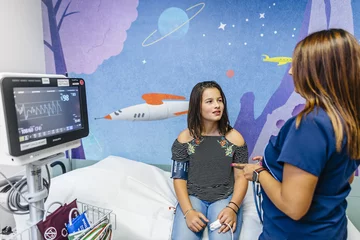What Causes Autism? Is Autism Genetic or Environmental?
QUICK FACTS:
- What Causes Autism? Genetics plays a major role, but environmental factors also may contribute.
- Is Autism Genetic or Environmental? Autism can be caused by genetic and environmental factors, which sometimes interact. However, genetic causes are more common.
Autism, or autism spectrum disorder (ASD), encompasses a spectrum of characteristics, which vary from patient to patient. It also has a spectrum of causes, including both genetic and environmental factors, such as specific maternal infections (like maternal rubella) and other perinatal complications.
“Autism is a constellation,” says Daniel H. Geschwind, MD, PhD, who won a National Academy of Medicine prize for investigating autism’s genetic underpinnings.
“You can think about the causes of autism like you might think about the causes of pneumonia,” he explains. “There’s no single cause of pneumonia; it can have many causes: bacteria, a virus, a fungus, or even a parasite.”
However, an estimated 200 - 1,000 genes impact autism susceptibility. In comparison, autism cases linked to environmental exposures during early fetal development, such as prenatal exposure to valporic acid, are relatively rare.
In the last few decades, research has significantly clarified the multi-faceted causes of autism and will continue to do so.
“We’ve successfully identified genetic causes of autism,” says Dr. Geschwind. “We're now ready and moving into a new phase where we're using the genetic information to develop therapeutics, and that's very exciting.
Meet Dr. Daniel Geschwind
Dr. Geschwind’s work centers around defining the mechanisms behind neurodevelopmental and neurodegenerative diseases.
He serves as Senior Associate Dean and Associate Vice Chancellor of Precision Health in the UCLA Health System and David Geffen School of Medicine at UCLA (DGSOM) and directs the UCLA Center for Autism Research and Treatment (CART).
Additionally, he’s the Gordon and Virginia MacDonald Distinguished Professor of Human Genetics, Neurology and Psychiatry and leads the Geschwind Lab as principal investigator.
Is Autism Hereditary? Does Autism Run in Families? Or Can You Develop Autism?
QUICK FACTS:
- Is Autism Hereditary? Yes, a majority of autism cases are hereditary.
- Does Autism Run in Families? Yes, a majority of autism cases are linked to inherited genetic mutations that run in families.
- Can You Develop Autism? Autism takes root during fetal development. No evidence suggests you can develop autism later in life.
Autism is hereditary and therefore does run in families. A majority (around 80%) of autism cases can be linked to inherited genetic mutations. The remaining cases likely stem from non-inherited mutations.
There’s no evidence that children can develop autism after early fetal development as a result of exposure to vaccines or postnatal toxins.
“Everything known to cause autism occurs during early brain development,” says Dr. Geschwind.
How Common Is Autism? How Many People Have Autism?
According to the Centers for Disease Control and Prevention (CDC), an estimated 1 in 36 children have diagnosed autism spectrum disorder.
An estimated 5.4 million adults in the United States have autism spectrum disorder.
What Percent Has Autism Increased in the Past 100 Years?
Dr. Geschwind says it’s hard to accurately determine if and how much autism has increased in the past 100 years.
“Rates have increased primarily because awareness, testing, and diagnoses have evolved to capture patients that were previously unrecognized or diagnosed with something different—not so much because instances of autism have actually increased.”
Leo Kanner published the first comprehensive description of autism in 1943. Autism existed prior to that, but cases would have been improperly diagnosed and documented.
Even in the decades immediately following autism’s identification, medical professionals lacked consensus about its causes and also how it should be diagnosed.
“Early psychoanalytic theories blamed parenting,” Dr. Geschwind says. “It didn’t become clear that autism had a huge genetic basis until the seventies and early eighties.”
Even today, autism case estimates can be skewed by a variety of factors.
“Estimated rates vary across the U.S. because different states have different diagnostics and education,” says Dr. Geschwind. “There are also huge diagnostic and treatment disparities by socioeconomic status.”
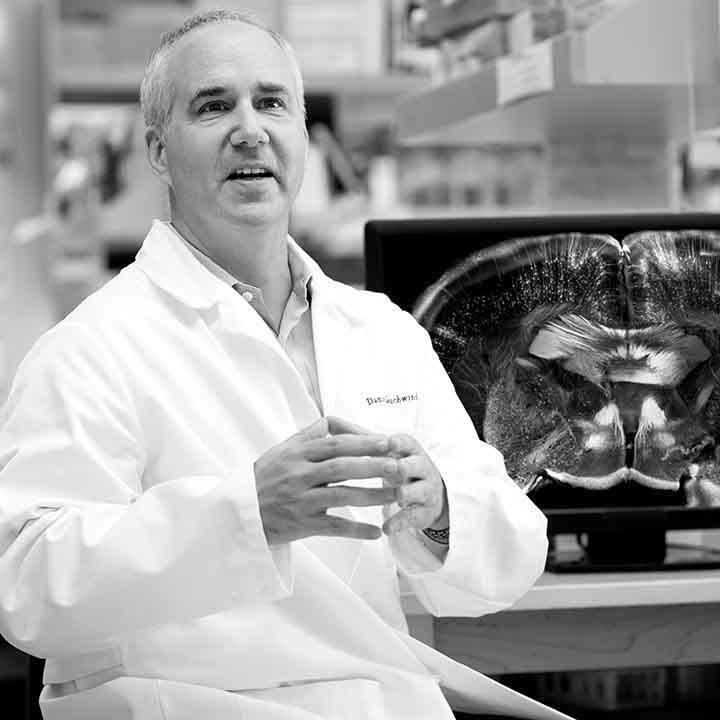
Is Autism a Disability or Mental Illness?
“Autism spectrum disorder is considered—from a biomedical perspective—to be a neurodevelopmental disorder,” says Dr. Geschwind. “However, ASD represents a wide range of behavioral and cognitive differences.”
In some cases, it can be seen as a minor disability that society needs to accommodate, similar to what we do with wheelchair accessibility. In others, ASD is accompanied by severe neurological or medical complications that necessitate intensive research and treatment.
Dr. Geschwind says it’s one of the common misconceptions about autism, that it involves intellectual disability.
“Some people with autism are also intellectually disabled, but the majority are not,” he says. “Therefore it’s not a core feature of autism.”
However, autism is categorized as a neurological developmental disability by the United States government. Depending on where they live, a person with autism may be able to claim government disability benefits as well as workplace or educational accommodations.
Can Autism Be Cured?
We cannot yet cure autism. Fortunately, modern treatments mitigate symptoms, especially when autism is diagnosed early.
“People might think there’s no point in diagnosing an incurable condition early,” says Dr. Geschwind. “They think they can’t do anything, but that’s not true. The earlier you diagnose and begin treatment, the greater impact you’ll have on the child.”
Autism’s highly variable nature makes precision treatments, which factor in an individual’s genes and lifestyle, particularly promising.
“In the future, we hope to have very specific treatments rooted in genetics that vary across individuals based on their genetic background and symptoms.”
To ensure the best, and safest, outcomes for children, Dr. Geschwind encourages parents to stick with evidence-based therapies administered and recommended by board-certified physicians, preferably who work at academic medical centers and have access to up-to-date research and best practices.
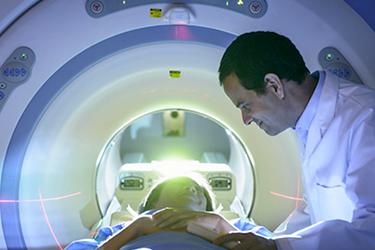
How Is Autism Diagnosed? What Are the Signs of Autism?
The spectrum of autism’s signs and symptoms listed by the CDC include, but are not limited to:
- Demonstrating delayed language skills
- Avoiding eye contact
- Not responding to names by 9 months of age
- Demonstrating obsessive interests
- Not noticing when others are hurt or upset by 24 months of age
- Repeating words or phrases over and over
- Getting upset by minor changes
- Demonstrating delayed movement skills
“There's wide variety in the way autism presents,” says Dr. Geschwind. “On the spectrum, there are highly functioning individuals and also those who need care their entire lives.”
In general, symptoms emerge in childhood, usually before the age of three. A child with autism may function well during their first year of life but begin struggling as they start using more social cognition and language abilities.
Common Misconceptions About Autism
Dr. Geschwind shared the most common misconceptions about autism that he encounters:
- People mistakenly believe that autism involves intellectual disability.
- People mistakenly believe that there’s no point in diagnosing autism early. In reality, diagnosing and starting treatment early has a huge positive impact on children.
- People mistakenly believe that autism can be caused by postnatal environmental exposures, but there is no evidence to support that.
- It’s not widely recognized that people with autism may have substantial talents and abilities that are strengths when it comes to the workplace.
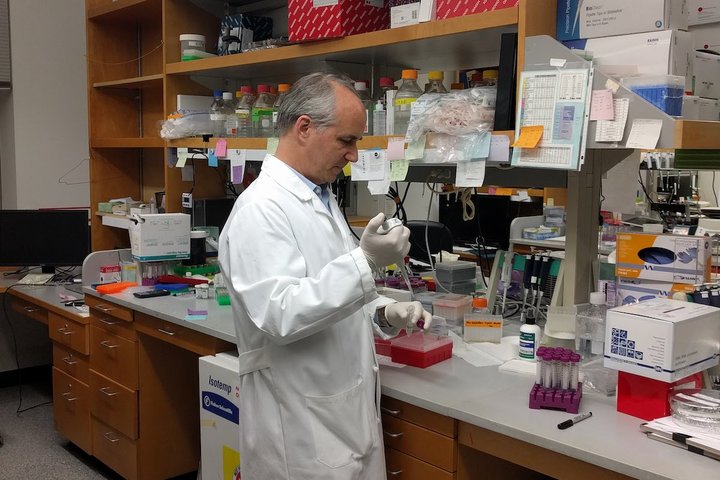
Autism Awareness Month
For Autism Awareness Month, Dr. Geschwind wants to recognize the unique abilities of people with autism.
“Many autistic individuals can have extraordinary strengths. This includes reliability, attention to detail, and a strong work ethic,” he says. “Sometimes this includes rare gifts. They have a lot to offer.”
They may also be vulnerable and often need solid support systems, even in high-functioning cases. Unfortunately, many societies lack requirements that guarantee adult autism support services.
Dr. Geschwind hopes for a future with more accommodation and support for this population.
“I think there's an enormous public health imperative to make early diagnoses and the best treatments and therapies available to all communities.”
Visit the UCLA Center for Autism Research & Treatment (CART) giving page for more information about supporting people with autism.
